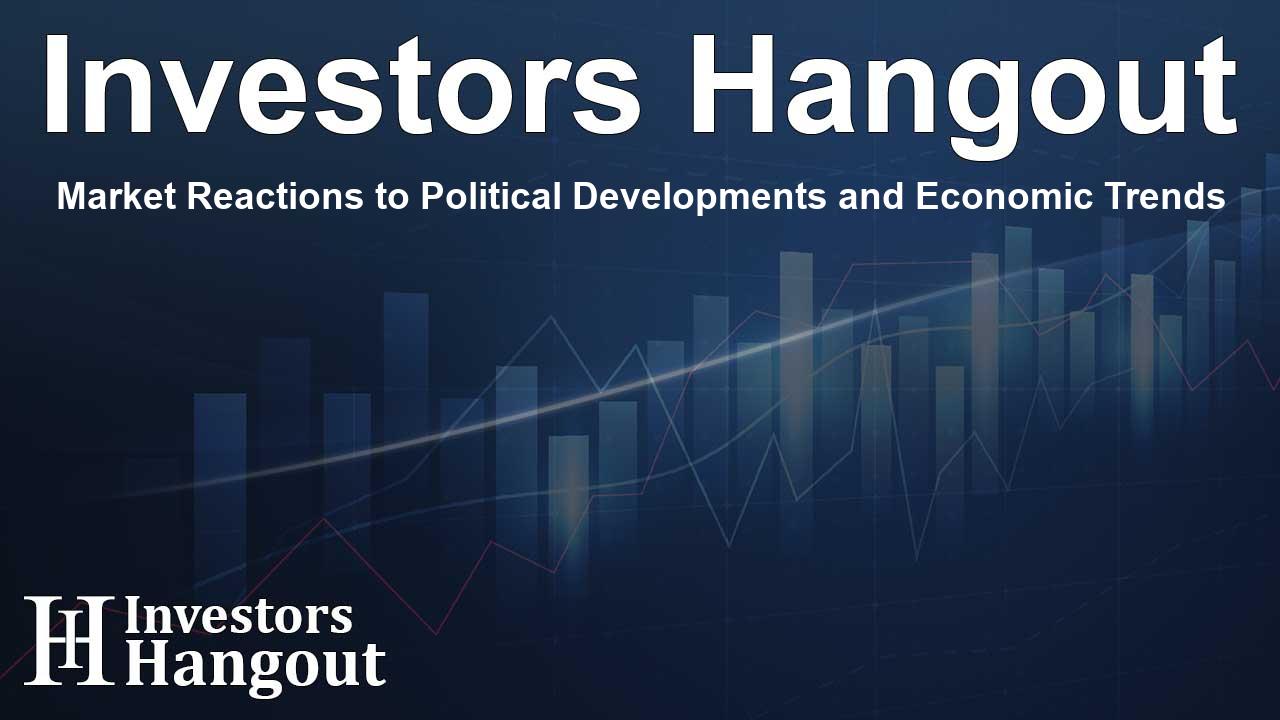Market Reactions to Political Developments and Economic Trends

Market Overview Following Political Events
In recent trading sessions, we have seen significant movement across various markets due to ongoing political developments and economic indicators. Lengthy negotiations and shifting political landscapes have led to notable fluctuations in currency values and stock indexes.
The latest German elections have confirmed projections from various polls, marking a pivotal change in the political environment. Although the CDU/CSU party emerged with the most seats, their victory was not as commanding as anticipated. The rise of the AfD party, which doubled its previous support and gained traction in many eastern regions, has sparked discussions about potential coalition formations. As the CDU/CSU works toward securing a government, the euro initially gained against the US dollar.
Impacts on Currency and Stock Prices
The adjustments in the political climate have resulted in a fluctuating euro, which has experienced a retreat from its initial gains amid uncertainties regarding government negotiations. Those involved in the markets reacted enthusiastically at first to the election outcomes, fearing a potentially overwhelming AfD success. However, the loosening of early gains showcases the ongoing uncertainty over the new government's formation.
Meanwhile, the European Central Bank (ECB) is undergoing intensive discussions regarding interest rates, with differing opinions within the governing council. While some members advocate for continued rate cuts, others, like officials from Belgium, suggest a need for more dynamic decision-making processes. The differing strategies reflect the broader economic conditions facing the EU economy and indicate a cautious approach as markets look for stability.
Tensions Surrounding Tariffs and Trade
As attention turns significantly towards trade, new tariff discussions have resurfaced, with potential ramifications for Canadian and Mexican imports. Politicians and economist observers anticipate further gatherings between US leaders and their counterparts from neighboring countries to negotiate terms. Businesses are preparing for possible challenges as changes in tariff structures could lead to escalated costs and shifts in market dynamics.
On the global stage, the situation in Ukraine continues to be a focus, as diplomatic maneuvers unfold. US leadership seems to be channeling efforts to strike a favorable deal with Ukraine that would also facilitate negotiations with Russia, showcasing the interconnectedness of geopolitical relations and economic strategies.
Shifts in Commodity Markets
Gold maintains a commanding presence in the commodities realm, hovering around significant price points as demand remains robust. The precious metal is closely monitored, particularly as geopolitical tensions could impact its future value. On the contrary, oil markets find themselves in a precarious position after hitting two-month lows. The OPEC+ production adjustments alongside new dynamics in Iraqi Kurdistan exports contribute to fluctuating prices, reflecting the ongoing adjustments to supply and demand calculations.
Cryptocurrencies are encountering their own set of challenges, following one of the most significant market disruptions due to the recent theft of substantial digital assets. Multiple exchanges are facing scrutiny in light of security concerns, continuing to pressure values across Bitcoin and Ethereum, as traders react by adjusting their positions amid rising instability.
Looking Forward
As market participants navigate these intricate developments, the focus remains on how political decisions will shape economic trends. Monitoring the formation of coalitions in Germany, the implications of tariffs, and the economic conversation surrounding interest rates will be crucial. Investors and traders alike are encouraged to stay alert to the evolving landscape, as the interplay of global economics and local political scenes unfolds.
Frequently Asked Questions
What impact do German elections have on the euro's value?
The outcome of the German elections and the ensuing coalition negotiations can affect investor confidence and economic stability, resulting in fluctuations in the euro's value.
How do tariffs influence market behavior?
Tariffs can lead to increased costs and economic uncertainty, prompting businesses and investors to adjust their strategies based on anticipated changes in trade relations.
What continuity do we see in gold prices amidst economic shifts?
Gold often acts as a safe haven during times of uncertainty, driving consistent demand even as it faces potential price volatility.
Why are cryptocurrencies experiencing heightened scrutiny now?
The recent significant security breach in the crypto market has raised concerns regarding exchange safety, leading to a decline in trust and values amongst digital assets.
What role does the ECB play in economic stability?
The ECB's decisions on interest rates and fiscal policy are pivotal in influencing economic conditions, thereby affecting currencies and overall market dynamics.
About The Author
Contact Hannah Lewis privately here. Or send an email with ATTN: Hannah Lewis as the subject to contact@investorshangout.com.
About Investors Hangout
Investors Hangout is a leading online stock forum for financial discussion and learning, offering a wide range of free tools and resources. It draws in traders of all levels, who exchange market knowledge, investigate trading tactics, and keep an eye on industry developments in real time. Featuring financial articles, stock message boards, quotes, charts, company profiles, and live news updates. Through cooperative learning and a wealth of informational resources, it helps users from novices creating their first portfolios to experts honing their techniques. Join Investors Hangout today: https://investorshangout.com/
The content of this article is based on factual, publicly available information and does not represent legal, financial, or investment advice. Investors Hangout does not offer financial advice, and the author is not a licensed financial advisor. Consult a qualified advisor before making any financial or investment decisions based on this article. This article should not be considered advice to purchase, sell, or hold any securities or other investments. If any of the material provided here is inaccurate, please contact us for corrections.
